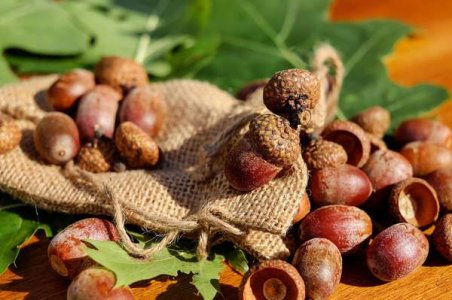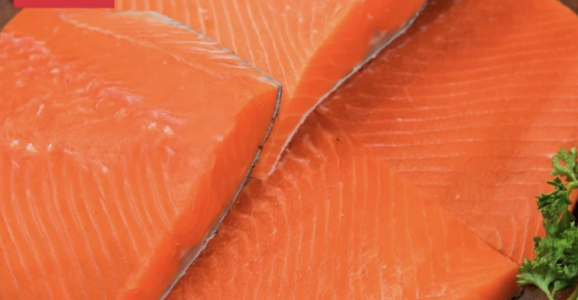You’re not a squirrel but acorns could also change your life—Here’s why you should consider eating them!
- Replies 0
Disclaimer: The information provided in this article is for educational purposes only and is not intended as a substitute for professional medical advice, diagnosis, or treatment. Always consult your physician or other qualified healthcare providers with any questions you may have regarding a medical condition or before making any changes to your health regimen.
When we think of acorns, the charming image of squirrels busily collecting these nutty morsels for their winter stash often comes to mind. But did you know that acorns have been a part of human diets for thousands of years?
That's right, our ancestors didn't just leave these nuts for the woodland creatures; they recognized the nutritional potential in these oak tree offerings. However, before you go foraging in your backyard, there are some important considerations to chew over.
Acorns are packed with nutrients. These little nuts are a source of carbohydrates, fats, proteins, and essential minerals such as potassium, calcium, and magnesium.
They also contain vitamins A and C, making them a potentially healthy addition to our diets.
But before you start envisioning acorn pie on your dinner table, let's crack into the less appetizing aspects of these nuts.

Acorns contain tannins, which are natural compounds that can be quite bitter and can cause stomach upset if consumed in large quantities.
Tannins are the same substances that give wine and tea their astringent qualities. In acorns, however, the concentration is much higher, which can lead to an unpleasant taste and potential health issues like gastrointestinal distress.
The good news is that tannins can be removed through a process called leaching, which involves soaking the acorns in water.
This process can take several days to weeks, and the water must be changed regularly until the bitterness is gone. It's a labor of love that our ancestors were willing to undertake, but it requires patience and a bit of know-how.
If you're intrigued by the idea of adding acorns to your diet, foraging is the first step. But beware, not all acorns are created equal.
Different species of oak produce acorns with varying levels of tannins. Generally, white oak acorns are less bitter and are preferred for eating.
Once you've gathered your acorns, the next step is to shell them, which can be a tough nut to crack—literally. Acorns have a hard exterior that requires some effort to remove. After shelling, you'll need to grind the nuts into a meal or flour, which can then be leached to remove the tannins.
After all the preparation, you might be wondering how to incorporate acorn meal into your diet.
Acorn flour can be used in a variety of recipes, from bread and pancakes to soups and stews. However, it's important to note that acorn flour doesn't behave like wheat flour—it lacks gluten, which means it won't rise or bind in the same way. This can make baking a bit of a challenge for the uninitiated.
Acorns are filled with vitamins, nutrients and minerals that help to support heart, bone and muscle health, as well as energy, metabolism and brain function, according to Trisha Best, a registered dietitian.
They're also beneficial for those on a low-glycemic diet, because "acorns release energy slowly, which aids in blood sugar regulation and sustained energy."
For the adventurous eaters and foragers among us, acorns offer a unique opportunity to connect with nature and our ancestral roots. They can be a sustainable and locally sourced food option that encourages us to think outside the grocery store aisle.

Have you ever tried acorns or other foraged foods? Are you interested in the idea of incorporating more wild foods into your diet, or does the preparation process seem too daunting? Share your thoughts, experiences, and any acorn recipes you might have in the comments below!
When we think of acorns, the charming image of squirrels busily collecting these nutty morsels for their winter stash often comes to mind. But did you know that acorns have been a part of human diets for thousands of years?
That's right, our ancestors didn't just leave these nuts for the woodland creatures; they recognized the nutritional potential in these oak tree offerings. However, before you go foraging in your backyard, there are some important considerations to chew over.
Acorns are packed with nutrients. These little nuts are a source of carbohydrates, fats, proteins, and essential minerals such as potassium, calcium, and magnesium.
They also contain vitamins A and C, making them a potentially healthy addition to our diets.
But before you start envisioning acorn pie on your dinner table, let's crack into the less appetizing aspects of these nuts.

Humans can eat acorns when prepared properly, as they contain tannins that need to be removed by boiling or soaking. Image source: Couleur / Pixabay.
Acorns contain tannins, which are natural compounds that can be quite bitter and can cause stomach upset if consumed in large quantities.
Tannins are the same substances that give wine and tea their astringent qualities. In acorns, however, the concentration is much higher, which can lead to an unpleasant taste and potential health issues like gastrointestinal distress.
The good news is that tannins can be removed through a process called leaching, which involves soaking the acorns in water.
This process can take several days to weeks, and the water must be changed regularly until the bitterness is gone. It's a labor of love that our ancestors were willing to undertake, but it requires patience and a bit of know-how.
If you're intrigued by the idea of adding acorns to your diet, foraging is the first step. But beware, not all acorns are created equal.
Different species of oak produce acorns with varying levels of tannins. Generally, white oak acorns are less bitter and are preferred for eating.
Once you've gathered your acorns, the next step is to shell them, which can be a tough nut to crack—literally. Acorns have a hard exterior that requires some effort to remove. After shelling, you'll need to grind the nuts into a meal or flour, which can then be leached to remove the tannins.
After all the preparation, you might be wondering how to incorporate acorn meal into your diet.
Acorn flour can be used in a variety of recipes, from bread and pancakes to soups and stews. However, it's important to note that acorn flour doesn't behave like wheat flour—it lacks gluten, which means it won't rise or bind in the same way. This can make baking a bit of a challenge for the uninitiated.
Acorns are filled with vitamins, nutrients and minerals that help to support heart, bone and muscle health, as well as energy, metabolism and brain function, according to Trisha Best, a registered dietitian.
They're also beneficial for those on a low-glycemic diet, because "acorns release energy slowly, which aids in blood sugar regulation and sustained energy."
For the adventurous eaters and foragers among us, acorns offer a unique opportunity to connect with nature and our ancestral roots. They can be a sustainable and locally sourced food option that encourages us to think outside the grocery store aisle.
Key Takeaways
- Humans can eat acorns when prepared properly, as they contain tannins that need to be removed by boiling or soaking.
- Once prepared, acorns are generally gentle on the digestive system and are a good source of fibre.
- Acorns offer various health benefits, being rich in vitamins, nutrients, and minerals that support heart, bone, and muscle health, metabolism and brain function.
- Consuming acorns can also aid in blood sugar regulation due to their slow release of energy and support good gut bacteria for digestive health.
Have you ever tried acorns or other foraged foods? Are you interested in the idea of incorporating more wild foods into your diet, or does the preparation process seem too daunting? Share your thoughts, experiences, and any acorn recipes you might have in the comments below!






